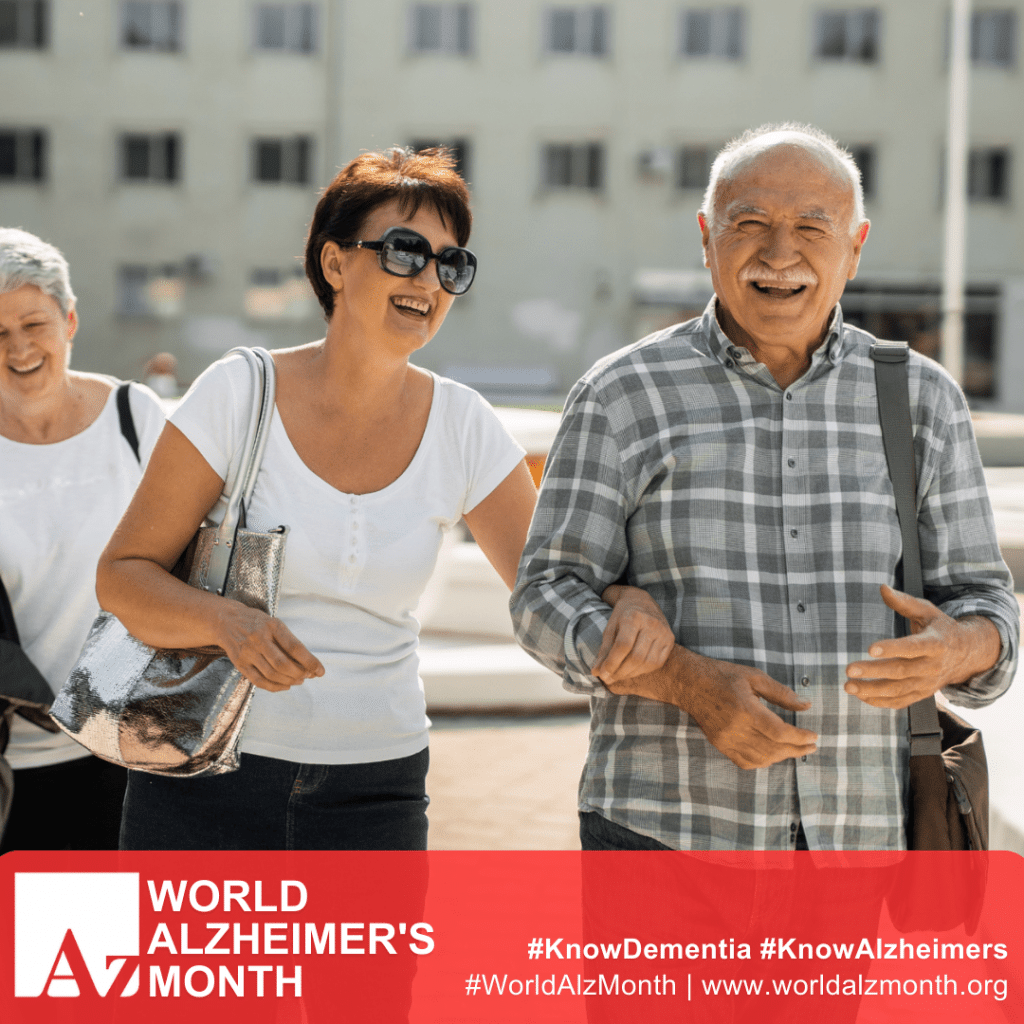Every September, World Alzheimer’s Month is an opportunity to raise awareness for people who are living with Alzheimer’s Disease. Across the world, millions of people are challenging the stigma that persists not just with Alzheimer’s, but all types of dementia.
According to The Alzheimer’s Society, there are around 900,000 people living with dementia in the UK. It’s projected that the number of people with dementia will be over a million in 2025, rising up to 1.6 million by 2040. As more people are living with dementia, it’s important that they have the right support available to them so that they can live well.
Sova’s specialist care services are tailored to ensure that your loved one with Alzheimer’s or dementia is cared for at home. Our team of specialist carers will ensure that they get the support they need with our care services that we offer, from dementia, Alzheimer’s and Complex Care.
The theme for World Alzheimer’s Month 2022 is ‘Know Dementia, Know Alzheimer’s’. Our World Alzheimer’s Month piece looks at how to care for someone who has Alzheimer’s Disease.
Learn and research about Alzheimer’s disease
If you don’t know a lot about Alzheimer’s, then it’s worth learning and researching the disease. Alzheimer’s is the most common cause of dementia, which can not only damage a person’s brain cells, but also affect their memory, behaviour and thoughts.
It’s worth noting that Alzheimer’s symptoms can worsen overtime, presenting challenges for people who care for people with the disease. There are three stages of Alzheimer’s, mild, moderate and severe. As it’s a progressive condition, the early stages of the disease may involve mild memory problems, such as forgetting people’s names, conversations or events.
As the condition progresses overtime, your loved one can develop more severe memory problems, which can have a major impact on their life. Problems with speech and language, struggling to plan and make decisions and hallucinations are a few symptoms that can develop with someone who has Alzheimer’s.
For people who have more severe Alzheimer’s, they’ll need help doing simple activities, such as walking, eating, sitting up and sitting down. They may also not be aware of their environment and not recognise their family members, as well as finding it difficult to swallow or chew food.
By having a solid understanding of what Alzheimer’s is, it’ll help ensure that you can plan ahead and care for your loved one.
Plan Activities For Your Loved One To Do
It’s common for people with Alzheimer’s to stop engaging in hobbies and activities that they once loved doing. Family members and friends should encourage your loved one to continue doing stuff that makes them happy. Not only will it increase their quality of life, but it will also prevent memory loss too.
Planning activities for your loved one to do can not only reduce anxiety, but also help them express themselves with other people around them. You should make sure that you plan the activities around the time of day where they are most likely to be alert and active, whether that’s in the morning or evening.
Listening to music, visiting family members, gardening and doing exercise are a few activities that you can get your loved one to do. By planning these activities during the week, it can help them reminisce or remember something that happened on their favourite walking route or board game they’re playing.
Help Them Communicate With Family Members
Alzheimer’s can have a major impact on how an individual is able to communicate with other people around them. Not only will they find it difficult to remember certain words, but they may regularly lose their train of thought midway through a sentence.
If you are caring for someone with Alzheimer’s, there are ways that you can make communication easier for them. Asking one question at a time, using open body language, smiling and making eye contact are all things that you can do to promote communication with your loved one.
By providing opportunities for your loved one to communicate with you and other family members, they can take part in daily conversations and activities.
Ensure That Their Safety Is Taken Into Account
If you are caring for your loved one with Alzheimer’s, you should take into account their safety at home. An individual with Alzheimer’s is likely to have issues not only with their balance, but their judgement too.
As they will be spending the majority of their time at home, it’s important that you take all safety precautions into account. From the bedroom to the bathroom and living room, it’s essential that you identify any possible hazards that may compromise the safety of your loved one.
Removing door locks, covering over the swimming pool or hot tub and installing safety knobs on kitchen appliances are some things that you can do. By taking the safety precautions into account, it reduces the likelihood of your loved one getting into an unsafe situation at home.
Choosing Sova Healthcare For Alzheimer’s Home Care
Caring for someone with Alzheimer’s disease can send you through a rollercoaster of emotions. If you are struggling to care for your loved one, Sova’s specialist team of Alzheimer’s carers will ensure that your loved one is cared for in the comfort of their own home.
Our live-in care service will ensure that your loved one is cared for from their own home. It’s a fantastic alternative to a care home, which means that they can maintain their independence while continuing to do everyday activities daily. We can tailor the service around your loved one’s requirements so that our carers can provide the highest quality care for them.
If you have any questions about our specialist Alzheimer’s Home Care service, contact our team of advisors today.

